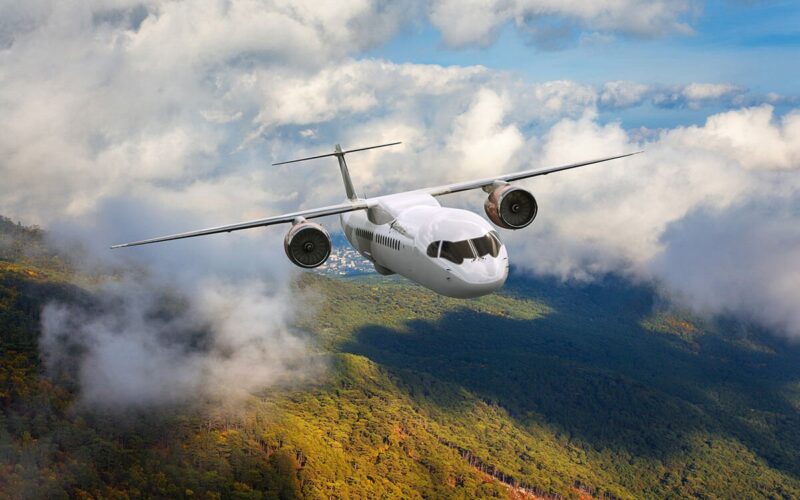airBaltic has signed a Memorandum of Understanding (MoU) to collaborate with Fokker Next Gen on the development of a clean-sheet airliner powered by liquid hydrogen, the Riga-based carrier announced on May 13, 2024.
Fokker Next Gen aims to develop a hydrogen-powered airliner by 2035 able to carry between 120 and 150 passengers, and with a range of up to 2,500 km.
While airBaltic has stated its interest in evaluating such an airline concept for future use, its involvement in this project would be, so far, of a consultative nature. The Latvian airline will provide feedback that Fokker Next Gen will be able to incorporate into the design and development of the future aircraft.
Hydrogen has been touted as a potential zero emissions replacement of current airliner propulsion technology.
Airbus, for example, is aiming to have a family of hydrogen-powered aircraft ready by 2035, the so-called ZEROe program, and companies such as ZeroAvia and Universal Hydrogen are developing solutions that would enable existing airframes to be retrofitted to run on hydrogen.
However, the industry has yet to solve several technological difficulties associated with its use in commercial aircraft, which highlights the ambitious nature of Fokker Next Gen’s project.
The airBaltic partnership is not the only project linking the Fokker Next Gen project to Latvia.
The airBaltic announcement follows the signature of another Memorandum of Understanding (MoU) in December 2023 with the Ministry of Economics of Latvia, the Liepaja Special Economic Zone (SEZ) and Riga Technical University (RTU) to create a Hydrogen Centre of Excellence in the Baltic country. The project will focus on applications for aircraft ground handling and airport uses of hydrogen.
What’s more, should the Fokker Next Gen project finally come to fruition, Liepaja International Airport (LPX) has been earmarked as the potential site of a final assembly line for the aircraft, complementing the company’s production activities in the Netherlands.
Based in the Netherlands, Fokker Next Gen is part of Panta Holdings, a Dutch investment firm with interests in the aerospace industry.
In addition to acquiring some of the assets of iconic planemaker Fokker, which went bankrupt in 1996, Panta Holdings owned airlines such as charter and ACMI operator Denim Air and Antwerp, Belgium-based regional carrier VLM Airlines, which it sold to CityJet.
More recently, Panta Holdings has become known for its investments in the sustainable aviation space.
Another technologically ambitious project in Panta Holding’s portfolio is Elysian Aircraft, a projected electric battery-powered aircraft that should be able to carry 90 passengers over distances of up to 800 kilometers. Elysian Aircraft has recently had Dutch flag carrier KLM join its advisory board.

